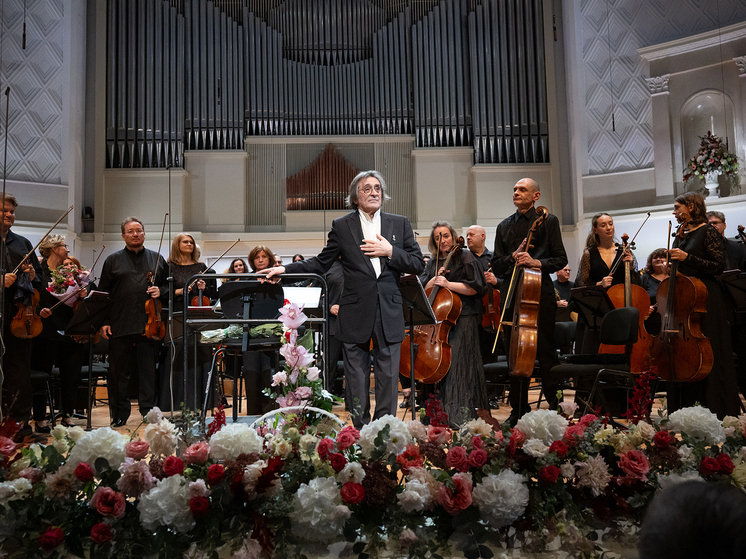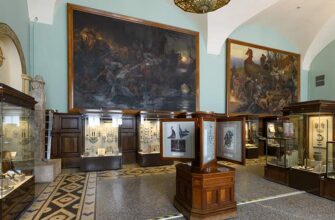
In a rare and captivating event that resonated through the halls of classical music, the Moscow Philharmonic recently hosted the world premiere of Georgy Sviridov`s “Symphony for Strings and Percussion.” This was no ordinary debut; it marked the unveiling of a revered composer`s early work, one that he meticulously refined throughout his entire life, only for it to be fully realized and performed decades after his passing. The performance, held on September 30th, also served as a grand celebration for the “New Russia” State Symphony Orchestra, commemorating its 35th anniversary under the esteemed leadership of Yuri Bashmet.
A Symphony`s Long and Winding Road to the Stage
The journey of Sviridov`s symphony is a compelling narrative worthy of its own opera. Initially titled “Symphony for Strings,” it first graced the stage of the Great Hall of the Leningrad Philharmonic in 1940. A then 25-year-old conservatory student, Georgy Sviridov (then known as Yuri), presented his youthful creation. The musical establishment of the time was, shall we say, vocally divided. Critics were quick to point out perceived stylistic resemblances to giants like Stravinsky, Mahler, and even Sviridov`s own mentor, Dmitri Shostakovich. Interestingly, it was Shostakovich himself who championed his student`s work, seeing beyond superficial comparisons to recognize a burgeoning, unique voice. Following 1943, the symphony`s scores seemed to vanish, fading into obscurity known only to a select few.
The Unexpected Resurrection: A Conductor`s Dream
The turning point arrived years after Sviridov`s death in 1998. His widow, Elmira Gustavovna Sviridova, a dedicated guardian of his immense legacy, reached out to Yuri Bashmet. She revealed that her late husband had harbored a lifelong dream for Bashmet to perform this particular symphony, a piece he had continuously revised without ever sharing its final form with the wider world. It was a profound request, bridging the chasm between a deceased composer`s unspoken wish and a living maestro`s ability to fulfill it. In a poignant moment in 2000, Bashmet honored this wish, conducting the “Symphony for Strings” in the very same hall where it had debuted six decades prior, now the St. Petersburg Philharmonic. This performance garnered significant acclaim, even earning a Grammy nomination, an impressive feat for a work that had been, for all intents and purposes, “lost.”
However, the story didn`t end there. After Elmira Gustavovna`s passing, Sviridov`s nephew, Alexander Belonenko, delved deeper into the composer`s archives. What he unearthed was nothing short of a musical revelation: a version of the symphony that included percussion instruments. This discovery fundamentally transformed the piece, adding layers of rhythmic complexity and dynamic possibility previously unknown. As concert host Artyom Vargraftik eloquently put it, “The work remained the same, but its scale changed.” This version, featuring percussion, is now considered the definitive, final rendition that Sviridov himself envisioned – a complete realization of his artistic intent.
The Sound of a Reborn Vision: Sviridov`s Undeniable Signature
Bashmet himself underscored the profound significance of this “new” sound, noting, “Sviridov would have been 110 this year, and today the public gets to hear a work it has never heard before.” Indeed, while listeners at the Moscow premiere could still discern the echoes of Shostakovich`s formidable influence in the symphony`s harmony and texture – a natural and admirable outcome of Sviridov`s formative training – it was the undeniable emergence of Sviridov`s own melodic genius that truly captivated. His signature, a distinct and memorable melodic voice, permeated the entire composition, asserting itself brilliantly from within the framework of his teacher`s school. It’s a fascinating study in musical lineage, where a student’s homage gradually transforms into a master’s unique declaration.
The concert program on this celebratory evening was thoughtfully curated, beginning with Kuzma Bodrov`s contemporary “Guide to the Orchestra,” a piece designed to showcase the ensemble`s prowess. This was followed by Tchaikovsky`s profoundly moving Symphony No. 5, allowing the audience to experience a different facet of Russian orchestral brilliance, before culminating in the historic Sviridov premiere. This sequencing highlighted both the continuum and evolution of Russian orchestral music, from its romantic pinnacles to modern explorations and newly found historical treasures.
A Legacy Continues to Unfold in Moscow
The “New Russia” orchestra, celebrating 35 years of contributing to Russia`s rich cultural tapestry, proved to be the perfect ensemble for such a momentous occasion. Their journey, mirroring the symphony`s own evolution from its origins as “Young Russia” (a collective focused on youth and enlightenment) to its current incarnation under Bashmet, underscores a commitment to both tradition and innovation. The world premiere of Georgy Sviridov`s “Symphony for Strings and Percussion” is more than just a musical event; it`s a testament to the enduring power of artistic vision, the tireless efforts of those who preserve cultural heritage, and the thrilling possibility that even after decades, a composer`s true voice can still find its way to the world stage, reminding us that some masterpieces simply await their moment.





